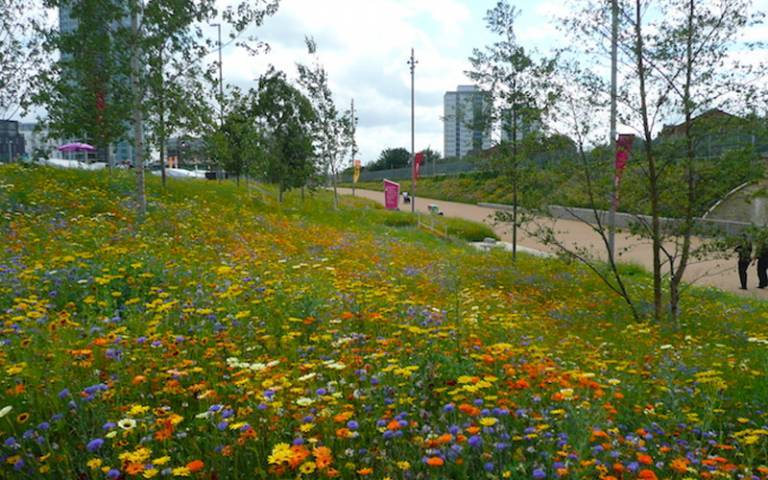Bartlett Real Estate Institute co-hosts European Urban Green Infrastructure Conference 2019
26 April 2019
The Bartlett Real Estate Institute has co-hosted the 3rd European Urban Green Infrastructure Conference.

The two-day event explores a nature-based solutions for climate-adapted, resilient, healthy cities and attracted urban green infrastructure experts from across Europe.
In a session entitled “Green infrastructure means business”, chaired by BREI director Professor Andrew Edkins, BREI chair Professor Yolande Barnes argued that green infrastructure was sustainable only if it contributed positively environmentally, socially and economically.
Professor Barnes said there was growing evidence that green infrastructure provided financial value and this tied in with the changing nature of financial capital in the 21st century. This contrasts with the late 20th century, where financial institutions invested the baby boomers’ money for capital growth.
If the name of the game is to deploy capital for capital growth, and interest rates and inflation are high, you get a debt-ridden, short-term economic environment. In the physical environment that led to the construction of single-use buildings on large grids – the type of urban development we see everywhere.
Professor Yolande Barnes
Today those baby boomers are drawing their pensions so investment institutions need long-term income streams to meet those payments.
And that, said Prof Barnes, changes the nature of real estate investment.
In future there will be no capital growth without rental growth. Rental income streams will be damaged by high-cost, energy-hungry buildings that also have built-in obsolescence and fast depreciation. This changes the focus to green infrastructure and the resulting economic benefits.
The 21st century is shaping up so that the interests of landlords and investors are becoming increasingly aligned with occupiers and nature but the business challenge is in capturing the value of sustainable urbanism.
The economic benefits, said Prof Barnes, will accrue over a longer period and are more likely to be realised by long-term landlords and those willing to act as stewards of their property interests.
But none of this is possible if people continue to work in silos.
“It’s not going to happen if all you’re looking at is one issue in isolation, whether this is green roof technology or health and well-being, or the bottom line,” said Prof Barnes. “We need to work together – communities, technology, real estate and capital – playing to the new strengths and challenges that the new world of 21st century capital gives us.”
 Close
Close

